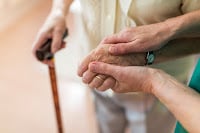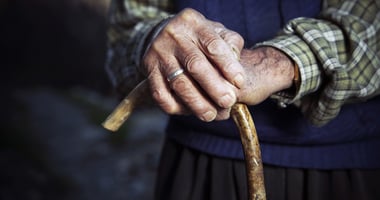Older adults taking antidepressants—particularly those with Alzheimer’s disease (AD)—appear to be...
Frail, Older Adults May Have Poorer Response to Antidepressant Treatment Than Non-Frail Adults

Older, depressed adults who are frail (experiencing deficits in strength and physical activity) may have a poorer response to antidepressant treatment than non-frail older adults with depression, according to a report in the Journal of Geriatric Psychiatry.
“Frailty in the context of late-life depression may mean that antidepressant medications are necessary but not sufficient for the adequate treatment of frail adults,” wrote Patrick Brown, Ph.D., of the Neurobiology and Therapeutics of Aging Division at the New York State Psychiatric Institute (NYSPI) and colleagues. Physical therapy, behavioral strategies, and/or exercise to improve energy, lower extremity strength, and greater overall activity levels may be necessary to improve outcomes.
Brown and colleagues compared outcomes of 49 frail adults and 51 non-frail or moderately frail adults over age 60 receiving treatment for late-life depression at the Clinic for Aging, Anxiety, and Mood Disorders at NYSPI. Frailty was determined using measures of gait speed, hand grip strength, physical activity, fatigue, and self-reported unintentional weight loss with clinically significant cutoff points: individuals were categorized as non-frail (0 deficits), intermediate frail (1-2 deficits), and frail (3 or more deficits). All participants had a diagnosis of either major depressive disorder or persistent depressive disorder and a score of 16 or higher on the 24-item Hamilton Depression Rating Scale (HRSD).
Participants were treated with antidepressant medication (escitalopram or duloxetine) either openly or in a placebo-controlled trial for eight weeks. Following the eight-week acute trial, participants were eligible to continue in open treatment for an additional 10 months.
After eight weeks of treatment, frail adults showed an average HRSD score 2.82 points higher than the non/intermediate frail adults; this difference persisted over the entire study follow-up period. Additional analysis revealed that weak grip strength and low physical activity levels were each associated with worse response to antidepressants, while slow gait speed, exhaustion, and significant weight loss were not. Participants with weaker grip strength had an average HRSD score 2.96 points higher at eight weeks of treatment, with this difference persisting over the entire follow-up period compared with those with stronger grip strength.
“These findings highlight the importance of comprehensively assessing adults with LLD [late-life depression] beyond the standard of psychiatric diagnosis and symptom severity ratings,” the researchers wrote. “Physical characteristics such as activity levels, strength, and mobility can provide important insight into the clinical trajectories of the patient [and] the identification of potential barriers to treatment implementation and may impact therapeutic decision making.”
For related information, see the Psychiatric News article “Purpose in Life Linked to Physical Function in Older Adults.”
(Image: iStock/PIKSEL)
Don't miss out! To learn about newly posted articles in Psychiatric News, please sign up here.






